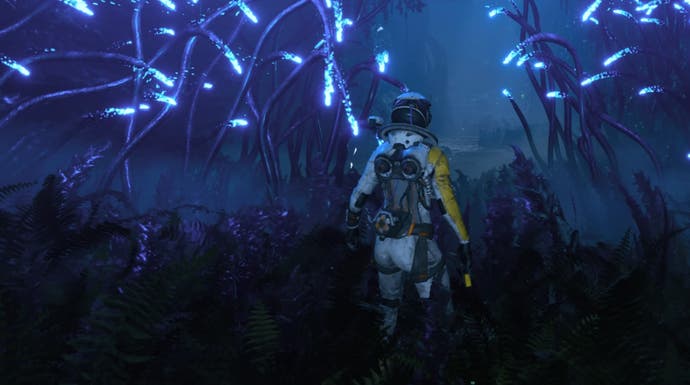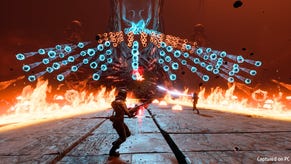Returnal shows that Sony can still be weird and daring
Next machina.
There's been understandable concern recently about Sony's reported obsession with blockbusters that are too big to fail - the God of Wars, the Horizon: Zero Dawns and the god-forbid-it's-real The Last of Us remake - so it's quite remarkable how Returnal has arrived within mere weeks of the story like some kind of rebuttal. This is one of the most daring, dazzling and straight-up different big ticket games to come from Sony since Death Stranding.
Is it any good? After half a dozen hours scrambling through a game dense with systems and mystery it's hard to say. Is it interesting? Abso-fucking-lutely.
How does Returnal work, then? It's a roguelike at heart, built around a moody sci-fi time-loop premise that sits neatly with the genre staples - die, die and then die again, all while an unknowable alien world rearranges itself each time out. The loop's as snappy as others of its ilk, the underlying risk/reward making everything agreeably intense. Chain three enemies together and you'll gain an adrenaline level that'll grant you a status effect; chain another three and you'll stack another effect again until you max out and can make the screen explode with the press of a button - take a hit, though, and you'll go back down to zero.
Returnal is unlike anything Housemarque has made before, a third-person shooter that plays out with the cinematic scope you'd typically find in the output of compatriots Remedy. It's a lavish production, dense in atmosphere and as much a showcase for the PlayStation 5 as anything we've seen to date (4K60 aside, this does wonders with some of those next-gen gimmicks too, the DualSense and 3D Audio combining for an out there experience that would do William Castle proud).
This isn't the Housemarque you might know from Resogun or Nex Machina yet it's also exactly like those boutique classics, mixing demoscene flex with arcade precision but on a much grander scale. There's an intensity to the action, a readability to enemies and attack patterns, an immediacy that all harks back to the hard-edged classics of the arcade, but the spectacle is something else; Robotron with raytracing, the resulting action worthy of an Amiga classic that plays out like Ridley Scott in crisp 70mm on the big screen.
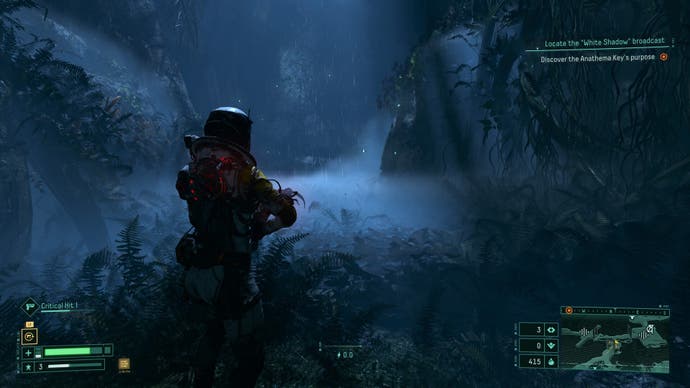
There's a fair bit of 70s sci-fi in Returnal, its aesthetic lifted liberally from Alien with foggy passageways and dank caverns in the first of its six biomes, its menus and displays told in fuzzy phosphorus green. The story is told in the moody ellipsis familiar from the likes of Control and it's shot through with enigma throughout, though while there's a tale to be unravelled this isn't exactly a cinematic blockbuster.
Instead Returnal is brilliantly, deliriously video game-y. It wears its influences on its sleeve - there's a flash of Metroid Prime in lead Selene as you take control in the first-person introduction, and when the proper third-person action starts there's something of Super Metroid in the rain-dashed ruins and the stricken ship you can return home to. It's there in the mild gear-gating - there'll be doorways you won't be able to open until you've acquired the melee weapon, for example, and already I'm seeing ledges and passageways I'm not yet equipped to reach, but which I'm fairly sure I will be soon.
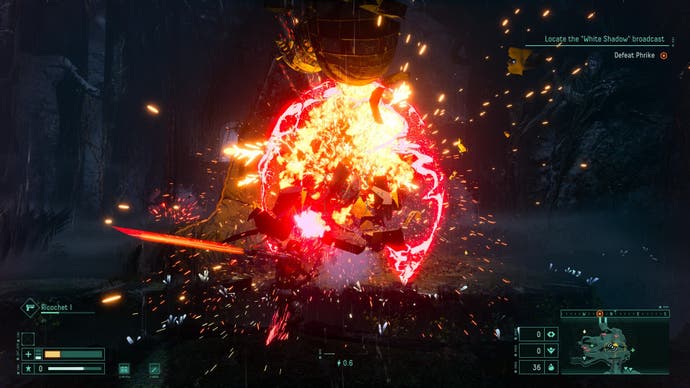
There's something of Gears in an active reload system that lets you recharge your weapon with a well-timed button press when it runs dry (something which is usually subject to a cooldown - a game as action-focussed as Returnal wouldn't dare concern itself with something so dry as ammunition), and something of Destiny in the mesh of perks and abilities that spark together when you make good headway into a run. Indeed, should the dice roll in your favour and you pick up a handful of them alongside a half-decent weapon, you can conjure up a build that is within 20 minutes as powerful as a guardian that's had 200 hours invested in them.
That's the upfront nature of the arcade right there, and it meshes well with the roguelike template - I'm six hours into my own journey and I'm far from fed up with it all, and far from understanding so many of the mysterious systems in action, each playthrough introducing a new quirk or offering a new build. How exactly to reach some of those distant ledges? How to open the door to the 20th century house that sits incongruously within the alien ruins?
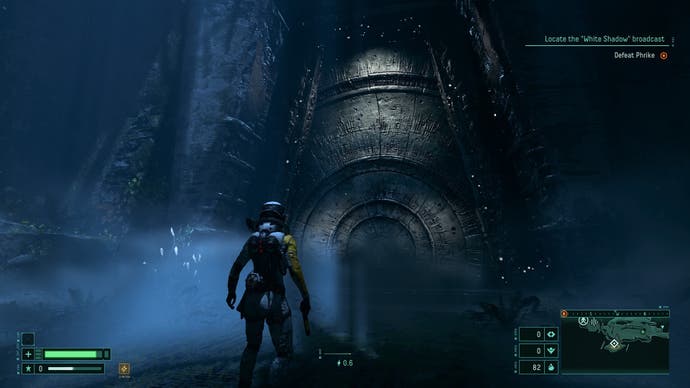
Like Death Stranding this is an indie that's epic in scope, and likewise it's not a game that comes up short when it comes to spectacle. Is it triple-A or isn't it? I'm not sure if there's a scientific way to determine that one way or another, but I can tell you that Returnal's credits run just as long as any Hollywood movie (just under 18 minutes, if you must know - I felt compelled to find out myself, anyway) and you can probably tell for yourself that it looks frankly outrageous.
Will a hard-edged shooter go on to find the same broad acclaim as Sony's other blockbusters, and how well will the final thing hold together over the course of a full playthrough? I'm not entirely sure of that either, but I do know this. There's never been anything quite like Returnal, a big ticket blockbuster with action that would do Eugene Jarvis proud. I'm itching to go back and play some more.
